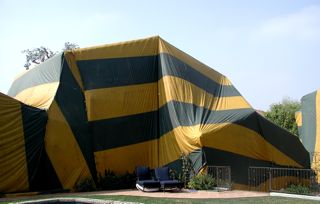Sue Naegle, my TV agent, is the new president of HBO Entertainment. I’ll miss her as an agent, but I’m very excited to see what she does with the network.
Northeaster
 I spent five days in Maine, writing and researching my next project. A few observations, in bullet point form:
I spent five days in Maine, writing and researching my next project. A few observations, in bullet point form:
* Part of my motivation for visiting Maine was that I’ve always claimed to have visited all 48 contiguous states, thanks to endless summer roadtrips with my family growing up. But my mom recently told me that we’d never been to Maine, which kicked in my set-completion instinct.
* I was reluctant to try to pronounce any place names in front of people. Bar Harbor is on Mount Desert Island. “Desert” is pronounced like “dessert,” which conjures images of a fantasyland of fudge and sprinkles.
* Even though a screenwriter isn’t trying to capture an accent per se, it’s important to choose words and patterns that can work with the accent when spoken by the actor. (“Down the road apiece. Can’t miss it.”)
* That said, I feel lucky that this won’t be a big accent movie, because several Mainers were adamant that Hollywood always gets the accent wrong. Which is probably true. But what I resisted pointing out was that no two Mainers I met had the same accent. It’s all over the place, particularly when you talk to people under 30.
* Going somewhere to write has become my standard operating procedure. I barricade myself somewhere without TV, internet or familial distractions, and crank through as many hand-written pages as possible in three or four days. I fax these pages back to Los Angeles, both for safety and to let my assistant type them up. This time, I faxed to an eFax account, which had the bonus of creating a digital backup in .pdf form.
* I took a lot of photos, [which you can see on Flickr](http://www.flickr.com/photos/johnau8ust/sets/72157604470043300/). It wasn’t really location scouting — we’re not at that point yet. But since there’s already a director on board, it can give him some sense of the place.
* One place had flies. [A lot of flies](http://johnaugust.com/Assets/stupid_flies.mov).
* Man, I was lucky not to be flying on [American](http://travel.latimes.com/articles/la-trw-american11apr11). [Or ATA. Or SkyBus. Or Aloha.](http://www.msnbc.msn.com/id/24018687/) (Though the last one would have been an unlikely choice.)
*  Another reason for the trip: we had to have our house tented for termites. This is probably alien to readers in colder climates, but in Southern California, termites can become pervasive enough that you need to nuke the house. Generally, you do it when the house is sold (and thus empty), but we’re not moving anytime soon, so we had to bite the bullet. But it looked cool, like a [Christo](http://www.christojeanneclaude.net/wk.shtml) project.
Another reason for the trip: we had to have our house tented for termites. This is probably alien to readers in colder climates, but in Southern California, termites can become pervasive enough that you need to nuke the house. Generally, you do it when the house is sold (and thus empty), but we’re not moving anytime soon, so we had to bite the bullet. But it looked cool, like a [Christo](http://www.christojeanneclaude.net/wk.shtml) project.
Maine
I’m headed east for a very long weekend, so updates are unlikely until Thursday.
Two-hander
![]() What the heck is a two-handed comedy? Google turns up lots of two-handed comedies, but no one explains what that means.
What the heck is a two-handed comedy? Google turns up lots of two-handed comedies, but no one explains what that means.
— jb
I don’t know if Variety invented it, but it shows up in their [slanguage dictionary](http://www.variety.com/index.asp?layout=slanguage&query=slanguage):
> **two-hander** — a play or movie with two characters; ” ‘Love Letters’ has been one of the most popular two-handers of the ’90s.” (See also: one-hander)
It’s worth looking through Variety’s made-up words list to help figure out what the hell they’re saying. In about 10% the cases, they’ve coined a term for something that probably merited a word (“kudocast,” “lense”). The other 90% are just color (“distribbery,” “ayem”).
The term that gets the most play is “ankle”:
> **ankle** — A classic (and enduring) Variety term meaning to quit or be dismissed from a job, without necessarily specifying which; instead, it suggests walking; “Alan Smithee has ankled his post as production prexy at U.”
This is probably an example of the [Sapir-Whorf hypothesis](http://en.wikipedia.org/wiki/Sapir-Whorf_hypothesis): in Hollywood, no high-level executive is ever fired. They simply leave their job. By using a deliberately ambiguous term, Variety maintains the illusion that everything happens by choice.
Trivia: It’s hard to believe, but Variety apparently first coined the term “sex appeal.”


